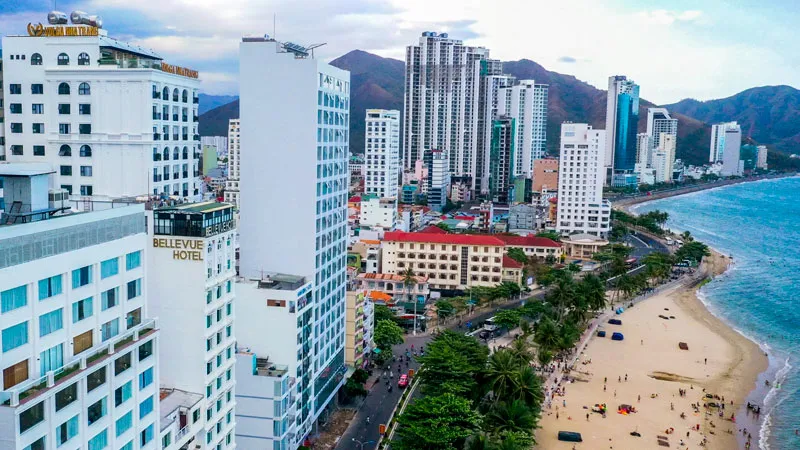
JOURNALIST: - Sir, the Cocobay Da Nang investors unilaterally terminated paying profits to customers before the deadline. Did this surprise you?
Mr. LE HOANG CHAU: - I am not surprised, because the condotel project and legal issues related to this model had many unclear issues from the beginning and several potential risks for secondary investors. The first condotel project appeared in Nha Trang in 2009, and like condotel projects in European countries, the main investor invites secondary investors to contribute capital, then the main investor can buy back the capital of the secondary investor.
Since 2014, many businesses have invested in condotel and sold to customers. In other countries, committed profit is only 4-5% per year, while in our country it is 8-12% per year for a period lasting from 8-12 years. Specifically, Cocobay committed 12% per year and the project in Nha Trang committed to 14%. This is actually a "decoy" for customers and we have warned secondary investors that there is no legal regulation to handle this if they face breach of trust, and the investor doesn’t propose a solution to ensure implementation of commitments.
In fact, when selling the project, the investor commits to two things, namely, high profits in the long run and a red book for condotel apartments. The first commitment has no guarantees, and the second commitment is similar because up to now there has been no guidance from the authorities on issuing of the red book for condotel. So both of the above commitments are "thin air". Moreover, the investor has increased the selling price to the level of selling high-end apartments in Ho Chi Minh City and has been chasing super-profits in these projects, because condotels invest at a normal price level and the project does not have to pay land use fees. Many people believe that paying profits to secondary investors is "using its own fat to fry", which is actually using money from investors to pay to investors. But in fact the investor does not have reserves to pay to secondary investors and first has to recover its own investment.
- Sir, how did this model develop earlier?
- From 2014 there has been a fever for condotel development in the whole country, focusing mainly on coastal areas and islands such as Van Don, Ha Long, Do Son, Sam Son, Cua Lo, Da Nang, Quy Nhon, Nha Trang, Mui Ne, Vung Tau, and Phu Quoc. In particular, the focus of development is more in Nha Trang, Da Nang and Phu Quoc. From 2015 to September 2017, there have been 71 condotel and officetel projects licensed with a total of 25,639 apartments. There are now 15,010 condotel apartments, with 4,114 units in Hanoi, 208 units in Ho Chi Minh City, 4,565 units in Da Nang, and 5,823 units in other provinces. There are 10,629 officetel apartments in all with 3,726 units in Hanoi, 6,424 units in Ho Chi Minh City and 478 units in other provinces.
At the moment, there is a paradox that the proportion of condotel apartments account for 56%, while the proportion of hotel rooms account for only 44%, which is not normal. In other countries the proportion of hotel rooms is always higher than condotel apartments. In 2016, the total supply of condotel apartments reached 16,000 units and in 2018 and 2019, around 20,000 condotel apartments sold out with an area of about 45 sq. m.
- Sir, does this model have legal loopholes and has the Association warned authorities of this?
- Regarding the use of tourism land, we realize that the majority of resorts are planned and developed in sensitive areas along the coast, islands, mountainous areas and borders. Moreover, tourism land is closely related with public interest, especially the interests of local communities. Therefore, it is recommended to continue applying the land use regime with a maximum term of 50 years, and in special cases not exceeding 70 years, for tourist land, including tourism land used to develop condotels. On that basis, buyers of products of condotel resort projects are issued a certificate of ownership and land use rights via the red book with a term of the project duration.
The urgent issue now is to solve issues on the red book for buyers of condotel apartments. We suggest following the provisions of Clause (1.c) Article 32 of Decree 43/2014/ND-CP dated 15 May 2014 of the Government, stipulating that a domestic unit will be granted a certificate of ownership of a building which is not a house, when a contract of sale or donation has been given, or inheriting construction works in accordance with the notarized law. Therefore, investors who buy condotel apartments will be issued a red book with a term equal to the land use term of the project, and when the land use term expires, it will be extended in accordance with the law.
- Thank you very much!




















